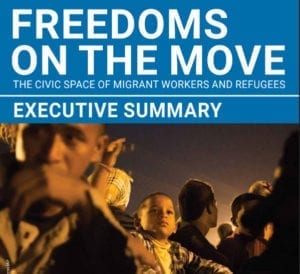The Solidarity Center, in collaboration with the Migrant Forum in Asia and Building and Wood Workers’ International, held its first Philippine multi-stakeholder consultation on the Global Compact for Safe, Regular and Orderly Migration (GCM) in preparation for its...
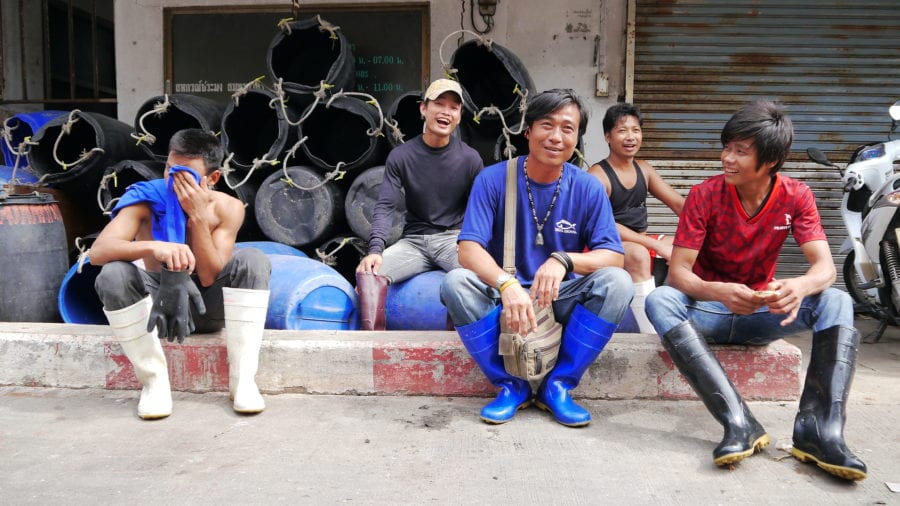
The Solidarity Center strives for rights for people on the move by ensuring migrant workers are fully able to exercise their workplace, social, economic and democratic rights. Solidarity Center/Jeanne Hallacy
Labor migration feeds the global economy. Hundreds of millions of migrant workers worldwide generate billions of dollars in global remittances. They are domestic workers, construction and agricultural workers, factory and service workers, teachers and professionals. Migrant workers often travel long distances due to a lack of decent work at home to support their families and build a better life. They frequently are denied the most basic human rights. For instance, most destination countries deny migrant workers the right to form unions, and explicitly exclude them from labor law protections, and women migrant workers are often subject to gender-based violence and harassment in their workplaces.
The Solidarity Center strives for worker rights for people on the move by ensuring migrant worker rights are a key part of the labor movement. We cultivate an understanding of how exploitative labor migration management schemes are a widespread means by which to undercut worker wages, create precarious work and pit workers against each other. And, in addressing these structural ills, we emphasize a response that understands the intersectionalities and identities that make migrant workers especially vulnerable. Our goal is to ensure that migrant workers are fully able to exercise their workplace rights, as well as their social, economic and democratic rights.
We also focus on the creation of decent work in home countries so workers can migrate by choice and not due to economic coercion. We recognize that migration is not caused by a single factor that “pushes” workers to migrate. In doing so, we bring our unique worker rights voice more broadly by emphasizing that everyone deserves dignity at work regardless of status—climate migrants, economic migrants and conflict refugees. We work to achieve this through programs that focus on union organizing and collective bargaining, policy advocacy, access to justice, safe migration and, more broadly, the ability to exercise fundamental freedoms as democratic participants.
Find out more
- A Pandemic Reset for Migrant Workers, Neha Misra and Shannon Lederer
- How COVID-19 Affects Women in Migration, Carolina Gottardo and Paola Cyment
Freedoms on the Move, a 2019 report by Solidarity Center and CIVICUS, is an urgent call to action for unions and other civil society groups to include migrant workers and refugees in advancing civic rights.
Safe, Fair Migration One Step Closer for Kyrgyzstan’s Workers
In a significant win for migrant worker rights organizations and the people they represent, Kyrgyzstan President Sadyr Japarov issued an August 28 decree that the republic join the UN's Global Compact on Safe, Orderly and Legal Migration (GCM). The decree demonstrates...
Brazil: Improving Labor Rights and Conditions for Migrant Workers
The Brazilian Ministry of Labor and Employment (MTE) rescued 39 workers, including children, in February from modern slavery in the state of Santa Catarina. Over half of them were Venezuelan migrants who had moved to the state via the government’s Operation...

Heat Stress in the Cambodian Workplace
In Cambodia, workers health and safety and climate change are linked. This report details the results of surveys, interviews, and thermal monitoring conducted in the garment, delivery, and informal food sector that display the negative effect that heat has on workers,...
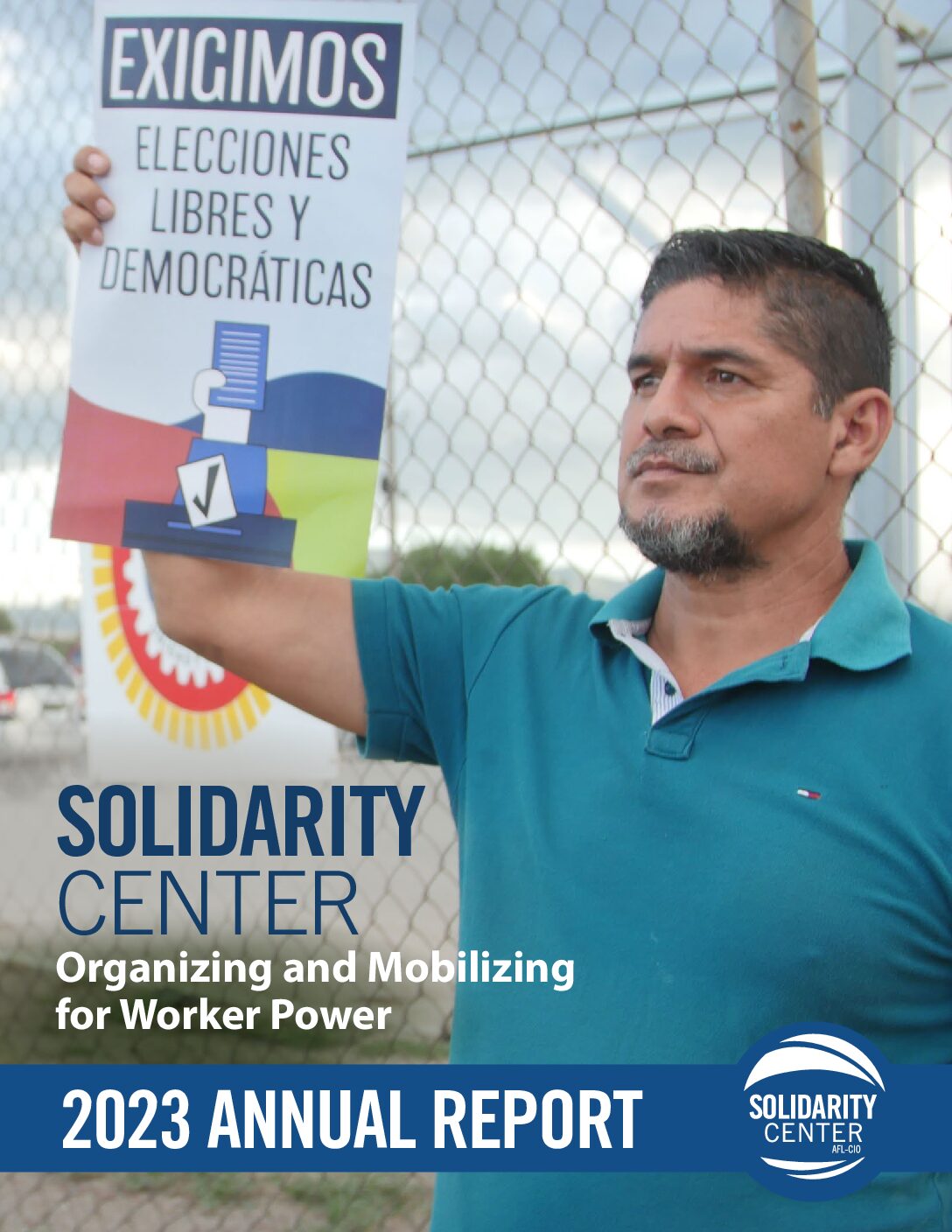
2023 Annual Report
In 2023, the Solidarity Center supported workers as they took on exploitative multinational companies and robot algorithms, demanded their governments tackle social ills and deliver on promises, and fought for justice in environments increasingly dangerous to those...
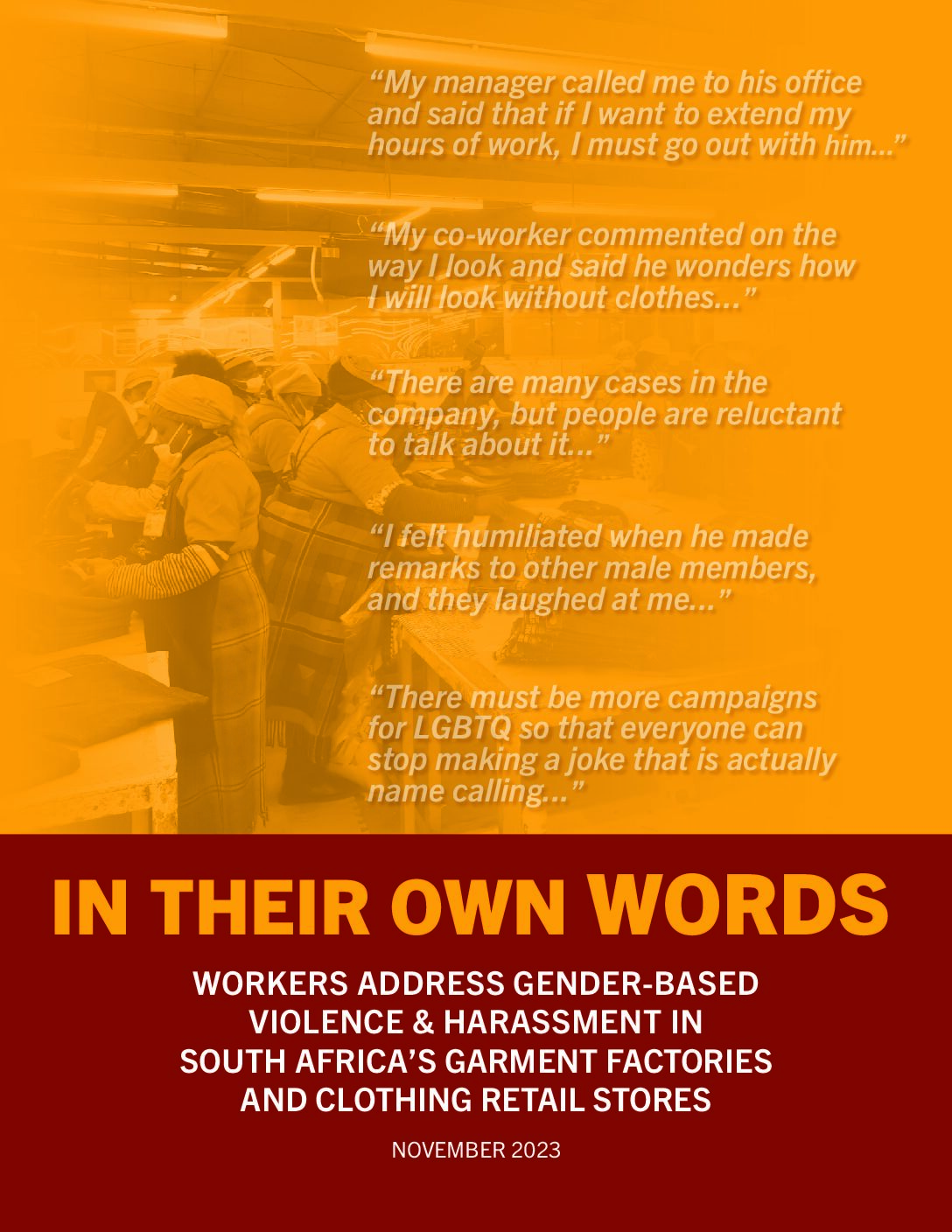
In Their Own Words: Workers Address Gender-Based Violence & Harassment in South Africa’s Garment Factories and Clothing Retail Stores
In South Africa, 98 percent of women garment and retail workers surveyed in 2022 said they had experienced one or more forms of gender-based violence or harassment, including physical abuse, unwanted sexual advances, psychological abuse, bullying and rape. To better...
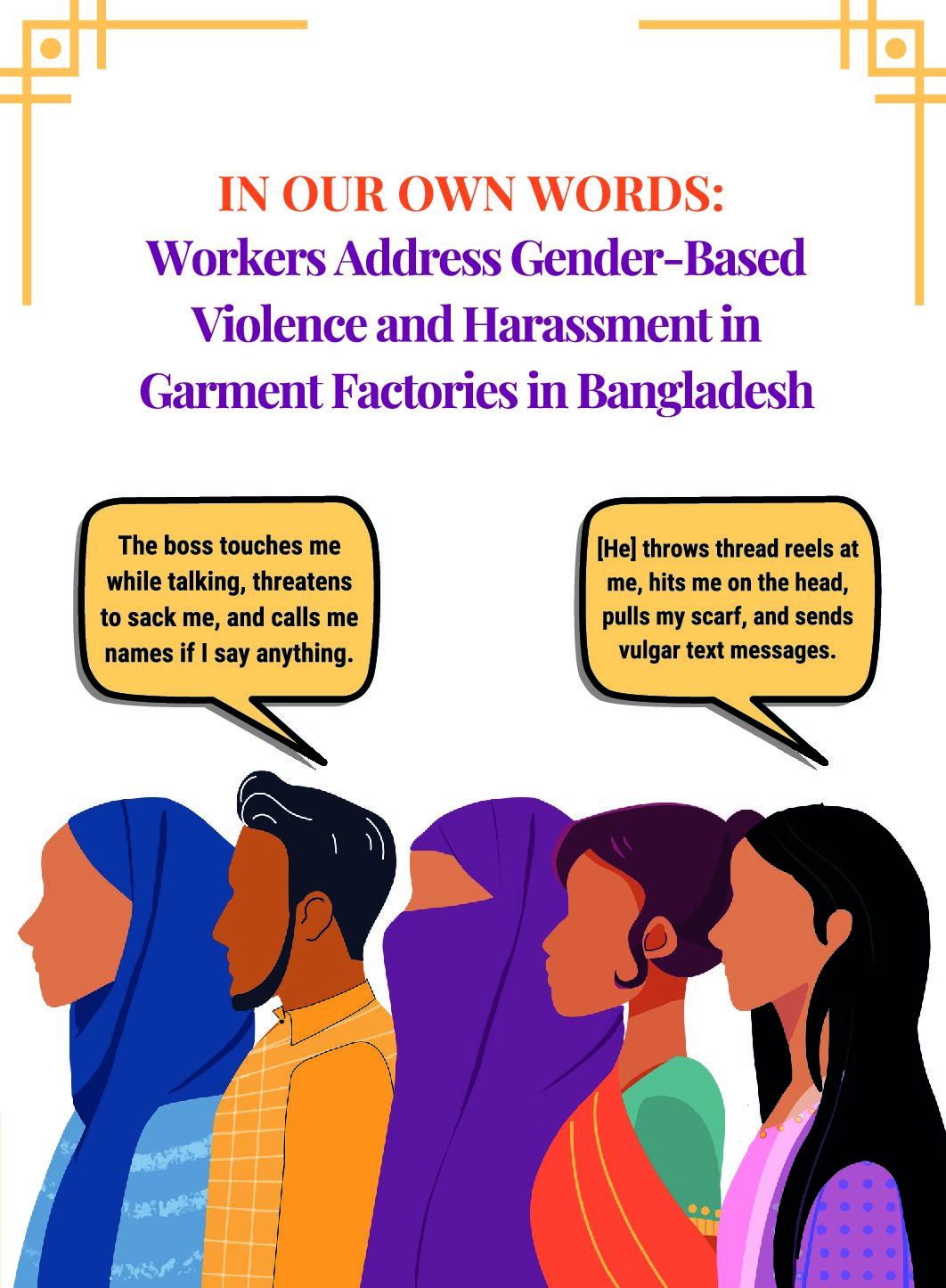
In Our Own Words: Workers Address Gender-Based Violence and Harassment in Garment Factories in Bangladesh
In Bangladesh, 80 percent of women garment workers surveyed in 2019 reported they had experienced or witnessed sexual harassment, molestation or assault, endured extreme verbal abuse or witnessed a factory manager or supervisor abuse and harass other women in the...
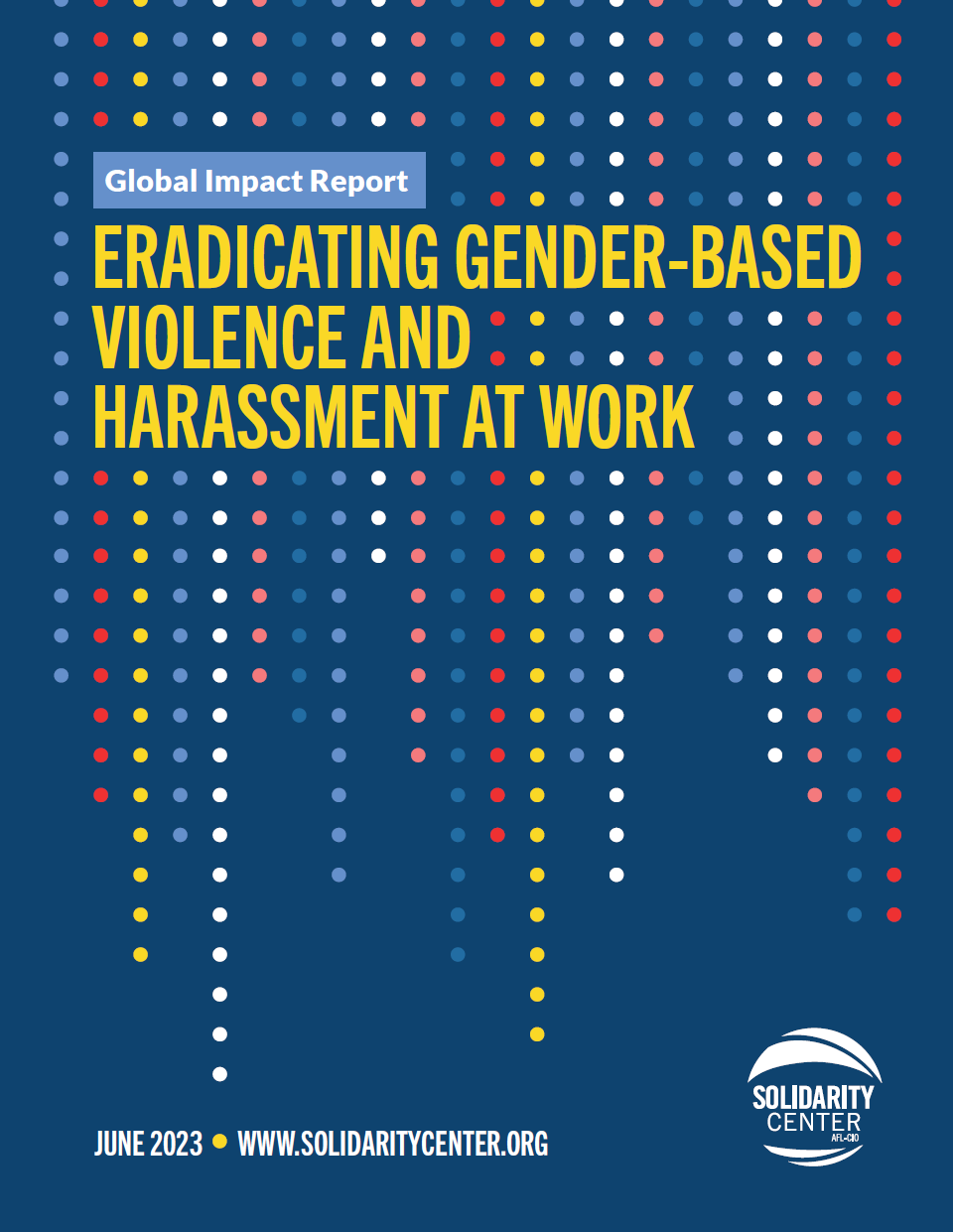
Global Impact report: Eradicating Gender-Based Violence and Harassment at Work
The Solidarity Center Global Impact report highlights the Solidarity Center's support of unions and civil society organizations in ending gender-based violence (GBVH) at work and showcases key outcomes, including a landmark agreement to address GBVH in Lesotho garment...
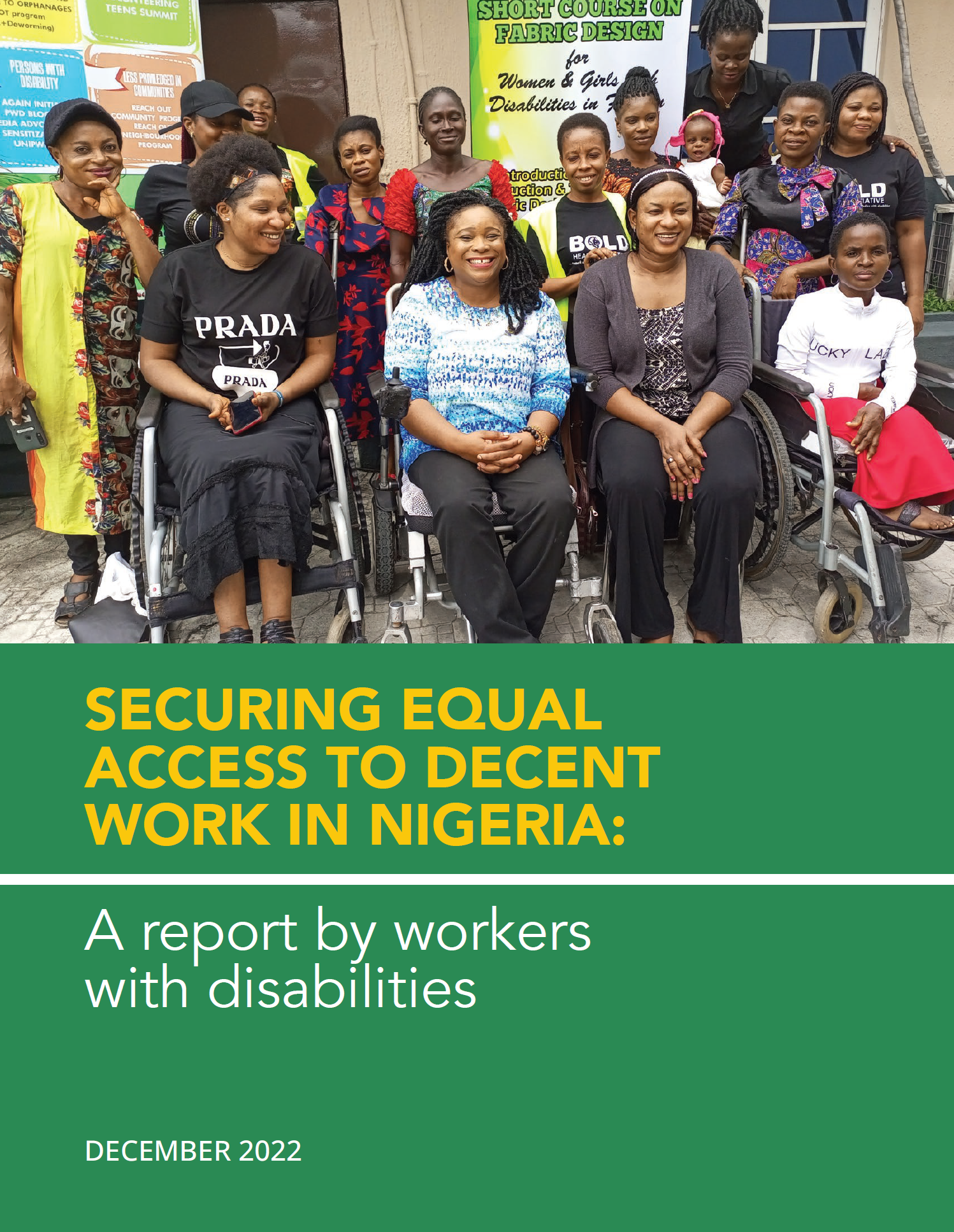
Securing Equal Access to Decent Work in Nigeria: A Report by Workers with Disabilities
A survey of more than 600 workers with disabilities in Nigeria conducted by the Trade Union Congress of Nigeria (TUC) Women Commission and the Solidarity Center in collaboration with Nigerian unions and disability rights organizations, finds that most workers...

